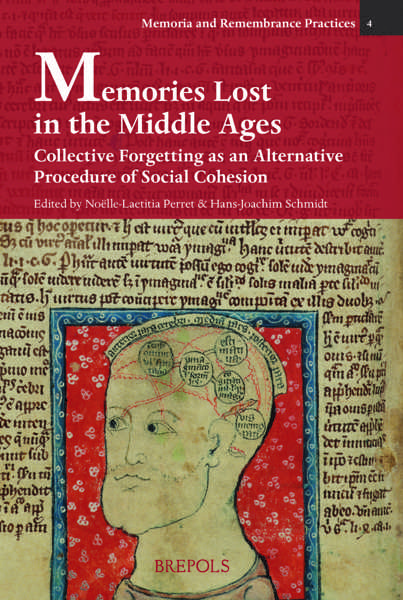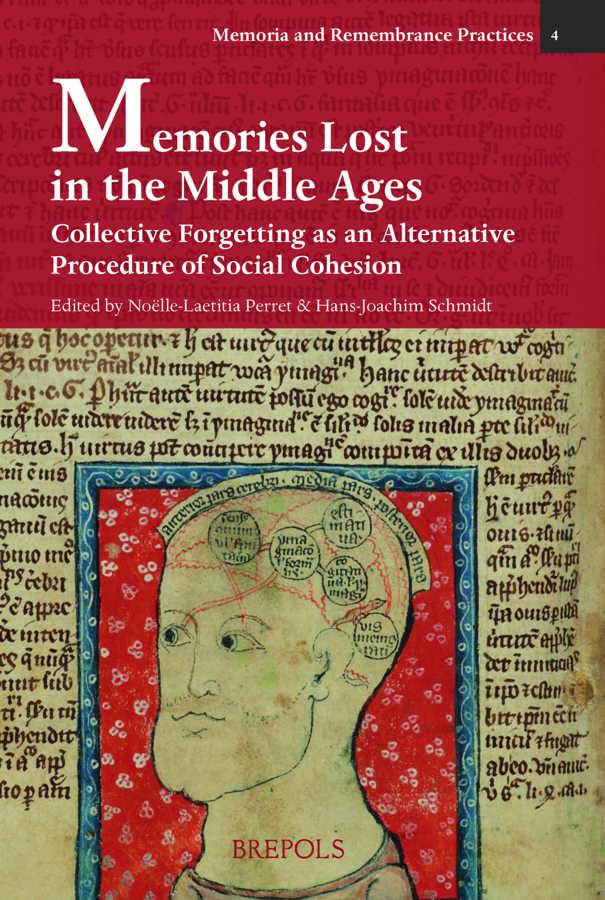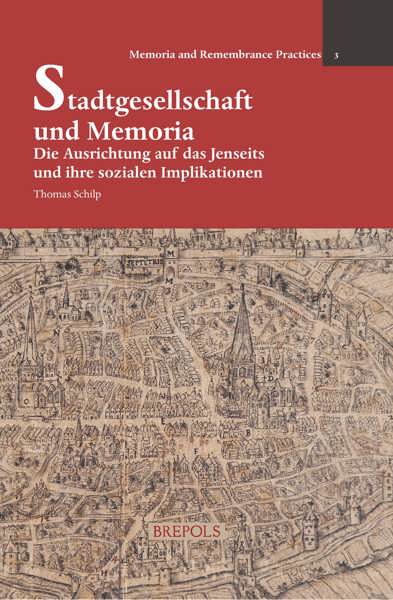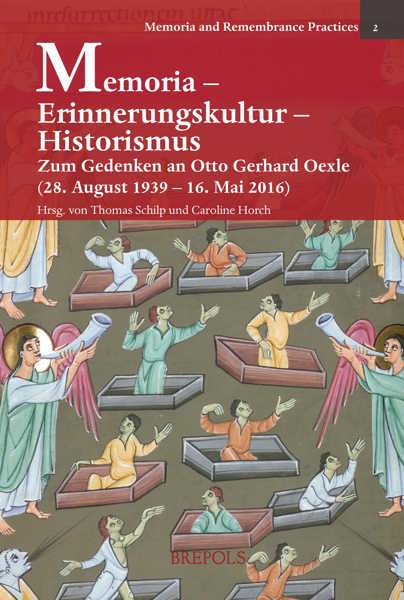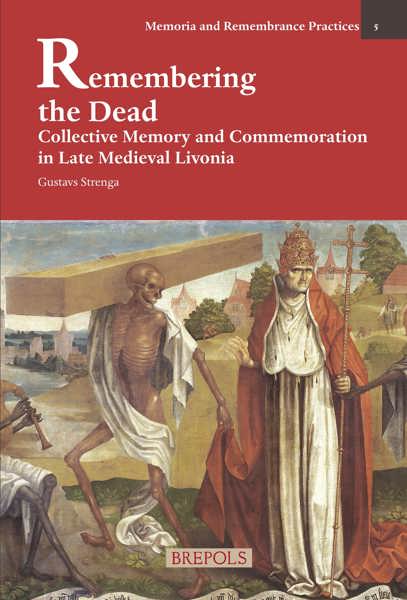
Memories Lost in the Middle Ages. Collective Forgetting as an Alternative Procedure of Social Cohesion
L’oubli collectif au Moyen Âge. Un autre processus constitutif de la cohésion sociale
Noëlle-Laetitia Perret, Hans-Joachim Schmidt (eds)
- Pages: 362 p.
- Size:178 x 254 mm
- Illustrations:32 b/w, 2 tables b/w.
- Language(s):English, French
- Publication Year:2023
- € 105,00 EXCL. VAT RETAIL PRICE
- ISBN: 978-2-503-59693-8
- Hardback
- Available
- ISBN: 978-2-503-59694-5
- E-book
- Available
"In their genuinely multiperspectival and multidimensional approach, the editors have gathered together in a coherent volume many diverse reflections, including philosophical, psychological, sociological, historical, political, and literary. Equally diverse are the times, cultures and societies addressed, demonstrating that when it comes to studying collective forgetting, “the notion of time is necessarily plural, particular, linked to multiple individual and collective contexts” (353)." (Dominika Ruszkiewicz, in The Medieval Review, March 2025)
"We are dealing here with a far-sighted and ambitiousinterdisciplinary (and international) project. (...) I find that the best part of the volume are the (mostly splendid and exhaustive) case studies from the fields of medieval and early modern history and arthistory." (Kristjan Toomaspoeg, in Francia-Recensio, 2025/1)
Noëlle-Laetitia Perret is Assistant Professor in Medieval History at the University of Geneva (Switzerland) and Associate Researcher at the École Pratique des Hautes Études – Université Paris Sciences et Lettres.
Hans-Joachim Schmidt is Professor Emeritus of Medieval History at the University of Fribourg (Switzerland).
The aim of this book is to examine the social, political and cultural consequences of ‘collective forgetting’ in the Middle Ages. Since the seminal work of Maurice Halbwachs, historical research has focused on ‘collective memory’ as the basis of social cohesion. Jan Assmann has introduced the slightly different concept of ‘cultural memory’, which he sees as a constitutive condition of political organisations and their stabilisation. Drawing on this Assmannian concept, this book examines this other process of ‘collective forgetting’.
Cet ouvrage ambitionne d’examiner les conséquences sociales, politiques et culturelles de « l’oubli collectif » au Moyen Âge. Depuis les études fondatrices de Maurice Halbwachs, la recherche historique s’est intéressée à la « mémoire collective » en tant que fondement de la cohésion sociale. Jan Assmann a introduit le concept légèrement différent de « mémoire culturelle », condition constitutive selon lui des organisations politiques et de leur stabilisation. Tout en s’appuyant sur ce concept assmannien, cet ouvrage propose d’étudier cet autre processus que constitue « l’oubli collectif ».
Introduction. Memories Lost in the Middle Ages. Collective Oblivion as an Alternative Process to Ensure Social Cohesion
Hans-Joachim Schmidt
1. Lost Memories. An Approach by Neurological Science
Karen G. Langer and Julien Bogousslavsky
2. La politique d’effacement des crimes dans le cadre des systèmes dictatoriaux : à propos de la fonction du pacte dénégatif entourant la disparition forcée de personnes
Muriel Katz, Manon Bourguignon et Alice Dermitzel
3. Contested Memories – Aspects of Collective Remembering and Forgetting
Dietmar J. Wetzel
4. L'oubli au Moyen Âge. Sélection, transformation et rejet du passé
Gerald Schwedler
5. Fragments of Antiquity in Medieval Processes of Oblivion
Lukas Clemens
6. Poétique de l’oubli
Nicolas Reveyron
7. The King of Sicily’s Testaments – Hidden, Falsified and Forgotten
Hans-Joachim Schmidt
8. Records and oblivion: strategies and events of cancellation of the documentary memory (some example, late medieval Italy)
Isabella Lazzarini
9. Oubli collectif et renouveau intellectuel. Impacts de la Ratio studiorum jésuite
Olivier Ribordy
10. Appropriation et effacement : la chapelle du chœur du pape Sixte IV dans l'ancienne église Saint-Pierre
Antonella Ballardini
11. Collecting and Drawing against Oblivion. Panvinio, Ceccarelli and Chacón and their Search for the Genealogical-Heraldic Identity of the Families of Rome
Andreas Rehberg
12. The Poverty of ‘Civism’
Martial Staub
Conclusion
L’ « oubli collectif » : un nouveau paradigme pour la recherche en histoire ?
Noëlle-Laetitia Perret
